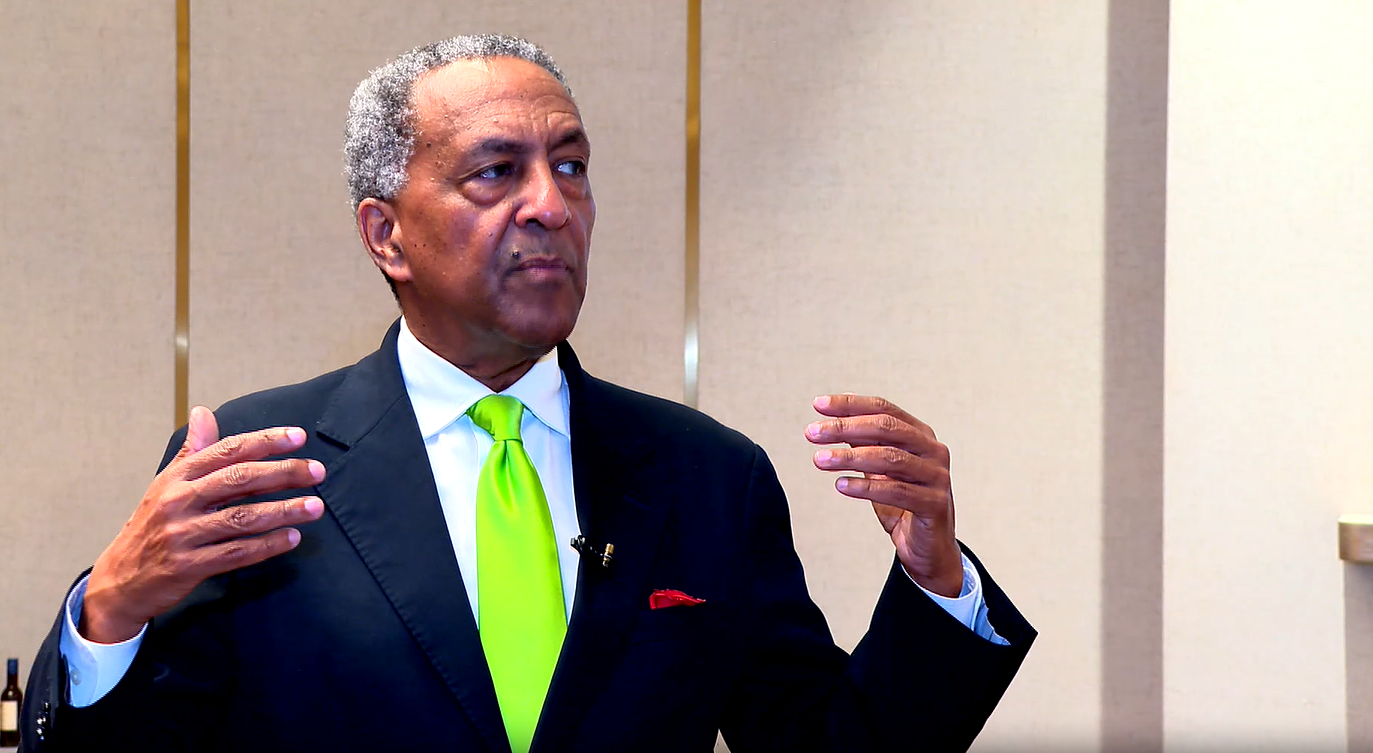Ethiopia's Natural Gas, Fertilizer Plants to Drive Trillion-Dollar Economy by 2040: Prominent Investment Advisor - ENA English
Ethiopia's Natural Gas, Fertilizer Plants to Drive Trillion-Dollar Economy by 2040: Prominent Investment Advisor

Addis Ababa, September 30, 2025 (ENA) -- A prominent investment advisor and businessman described the 2.5 billion USD urea fertilizer complex deal between Ethiopia and Dangote Industries Limited, forecasting economic transformation as the investment eliminates billions of dollars in fertilizer imports.
Ethiopia is positioned for unprecedented economic growth as the production of natural gas and massive fertilizer facilities converge to transform the East African nation into a continental industrial powerhouse, Zemedeneh Nigatu, CBE Capital Investment Bank CEO and a seasoned Ethiopian-American investment advisor said.
The country's emergence as a natural gas producer, combined with upcoming fertilizer plants will replace billions in annual import expenditure, representing a fundamental shift in Ethiopia's economic trajectory from resource dependency to industrial self-sufficiency and export capacity.
The recent announcement of substantial natural gas reserves in the Kalub and Hilala fields represents a game-changing development for Ethiopia's industrial ambitions. The gas is readily available now in Ethiopia, Zemedeneh said, noting that the deposits are sufficient to support pipeline infrastructure powering the country's emerging fertilizer industry.
This natural gas discovery addresses a critical gap in Ethiopia's industrial capacity. The country has historically imported between $1 billion and $2 billion worth of fertilizers annually, a significant drain on foreign currency reserves.
"We were spending billions of dollars in hard-earned foreign currency to other countries... that resource was actually readily available in Ethiopia," Zemedeneh explained.
The upcoming fertilizer production facilities, developed through a 2.5 billion USD partnership with Nigerian conglomerate Dangote, will transform Ethiopia from a fertilizer importer to a potential exporter. This Pan-African collaboration between the continent's two most populous nations demonstrates that Africa can work together on a large scale, according to Zemedeneh.
The fertilizer plants will serve dual purposes - reducing import dependency while modernizing Ethiopia's agriculture sector, which remains the mainstay of the economy.
"Ethiopia can be an export powerhouse," Zemedeneh emphasized, drawing parallels to the United States where agriculture remains among the top ten exports despite the country's diversified economy.
Ethiopia's expanding energy capacity, including recent major hydroelectric projects, has positioned the country as Africa's second-largest electricity producer after South Africa.This abundant, affordable power provides crucial competitive advantages for manufacturing and industrial development.
Drawing from personal experience as chairman of a major Ethiopian manufacturing company to boost export markets, Zemedeneh highlighted how energy availability has proven key to international success.
The combination of reliable electricity and emerging gas resources creates a major magnet, an attraction for both domestic and multinational companies establishing operations in Ethiopia, he said.
Ethiopia's energy surplus is already flowing beyond its borders, with electricity exports to neighboring countries supporting African integration objectives while generating foreign currency.
Zemedeneh 's confidence in Ethiopia's economic future stems from successful forecasting track record.
Referencing predictions made 15 years ago though seemed very rosy, very unrealistic at the time, Ethiopia has exceeded those projections, he noted.
Currently Africa's fifth-largest economy, Ethiopia is forecast by the IMF to be "the fastest growing economy of the five largest in Africa, and amongst some of the fastest in the world" over the next five years.
Looking further ahead, Zemedeneh cited Goldman Sachs forecasts projecting Ethiopia's GDP to reach 1.6 trillion USD by 2040, which is about eight times what it is today.
"These are people sitting there deploying capital around the world, looking at everything, and they're forecasting Ethiopia," he emphasized, adding that longer-term projections suggest the country could rank as the world's 16th largest economy with over 6 trillion GDP by 2060.
"Not only is it sizable by African standard, by emerging market standards, but according to the IMF, over the next five years, between 2025 to 2029, it will be the fastest growing economy of the five largest in Africa, and amongst some of the fastest in the world."
Despite the optimistic outlook, Zemedeneh acknowledged ongoing challenges, particularly inflation, which has been "structurally" problematic for the past 15 years.
However, he highlighted recent progress, noting inflation has dropped from 35 percent to 13.5 percent over two years according to National Bank forecasts.
"Once we get it to single digits and we sustain it there, I think the macroeconomic stability will encourage investors and help the economy on a sustainable basis," he stated, emphasizing the critical importance of continued economic reforms and private sector strengthening.
The convergence of energy abundance, natural resource development, and manufacturing capacity positions Ethiopia uniquely among African economies. With 70-75 percent of its 130 million populations under 30 years old, the country possesses what Zemedeneh calls "deployable, tradable capital" in human resources.
"The Ethiopian economy will be transformed on the back of talent, educated people, people who are productive," he concluded, drawing comparisons to Asian economic success stories where countries achieved remarkable growth through human capital investment despite limited natural resources.
"And also the shift to private sector will have to continue, strengthen the Ethiopian private sector, all the private sectors that are operating here, because they'll be the engine block. Ultimately, though, it's a relationship between the state and the private sector. That's what's going to propel Ethiopia to the next level."
According to him, in a bid to unlock Ethiopia’s economic potential, economic reforms have to continue to sustain its projected rapid growth and realize its full potential. My key message here is the reforms have to continue, he added.
He stressed that these ongoing reforms must include the continued improvement of the ease of doing business and a decisive shift to and strengthening the private sector, which he believes will serve as the "engine block" for the economy. Ultimately, the successful trajectory of the Ethiopian economy will be propelled by a productive partnership between the state and a strong, empowered private sector.